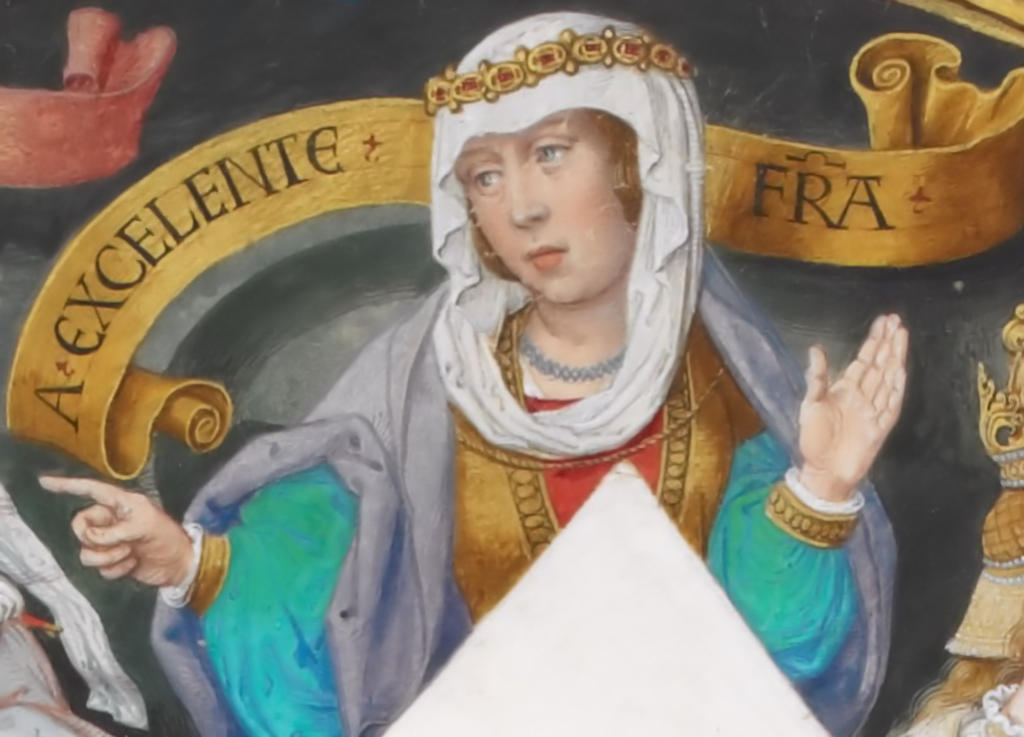However, many prominent nobles refused to recognize Joanna as the legitimate heir, preferring Henry's younger half-brother, Infante Alfonso, for the position. This disagreement led to armed conflict, and in 1464, Joanna was repudiated by Henry in favor of Infante Alfonso. Henry agreed to a compromise that Infante Alfonso would marry Joanna, ensuring their joint claim to the throne. Unfortunately, Alfonso's untimely death in 1468 and Henry's divorce from Joanna's mother further complicated the succession.
Joanna faced years of captivity under different guardians from 1465 to 1475, including the Mendoza family and Juan, Marqués de Villena. Various negotiations were made for Joanna's marriage to someone who could protect her rights to the throne. In 1470, she was betrothed and married by proxy to Charles, Duke of Guienne, the brother of Louis XI of France. However, Charles passed away in 1472, leading to further arrangements for Joanna's marriage.
Eventually, Joanna was promised in marriage to her maternal uncle, King Afonso V of Portugal. They married in Plasencia in May 1475, and Joanna became the Queen of Portugal. Her court was based in Toro, and despite her young age, she was considered a promising ruler. Joanna sent a letter to the cities of Castile, expressing her desire to rule and proposing a vote to determine which succession should be recognized. However, Joanna found fewer supporters than expected, and her cause suffered a setback in the Battle of Toro in March 1476.
Although the battle ended indecisively, Joanna and Afonso V's prestige diminished due to Ferdinand II's strategic messaging. The party supporting Joanna's claim to the throne gradually dissolved, and the Portuguese were forced to return to their kingdom. In 1478, Joanna and Afonso V's marriage was annulled by Pope Sixtus IV on grounds of consanguinity, abruptly ending her reign as Queen of Portugal. She was also compelled to renounce her title as Queen of Castile.
Lisbon.vip Recommends
In 1482, King Francis Phoebus of Navarre proposed marriage to Joanna, potentially reigniting her claim to Castile. This offer was seen as a warning to Isabella and Ferdinand from the French, who sought to protect their interests. However, Francis passed away soon after, and Joanna's life took another turn. Isabella died in 1504, and rumors circulated that Ferdinand proposed marriage to Joanna as a means to retain control of Castile, but she declined the offer.
Joanna continued to sign her letters as "La Reina" (the Queen) until her death. In Portugal, she was known as "a Excelente Senhora" (the Excellent Lady). Joanna passed away in Lisbon on April 12, 1530, outliving her aunt, Isabella I. Her claim to the Castilian throne ended with her death, leaving her namesake cousin Joanna, who was already the reigning Queen of Castile, as the heir. However, due to the complex dynamics and animosity between the two branches of the family, Joanna had proclaimed the King of Portugal as her heir in 1522, as her cousin was the daughter of two individuals who had previously challenged and usurped her own crown (Isabella and Ferdinand).



